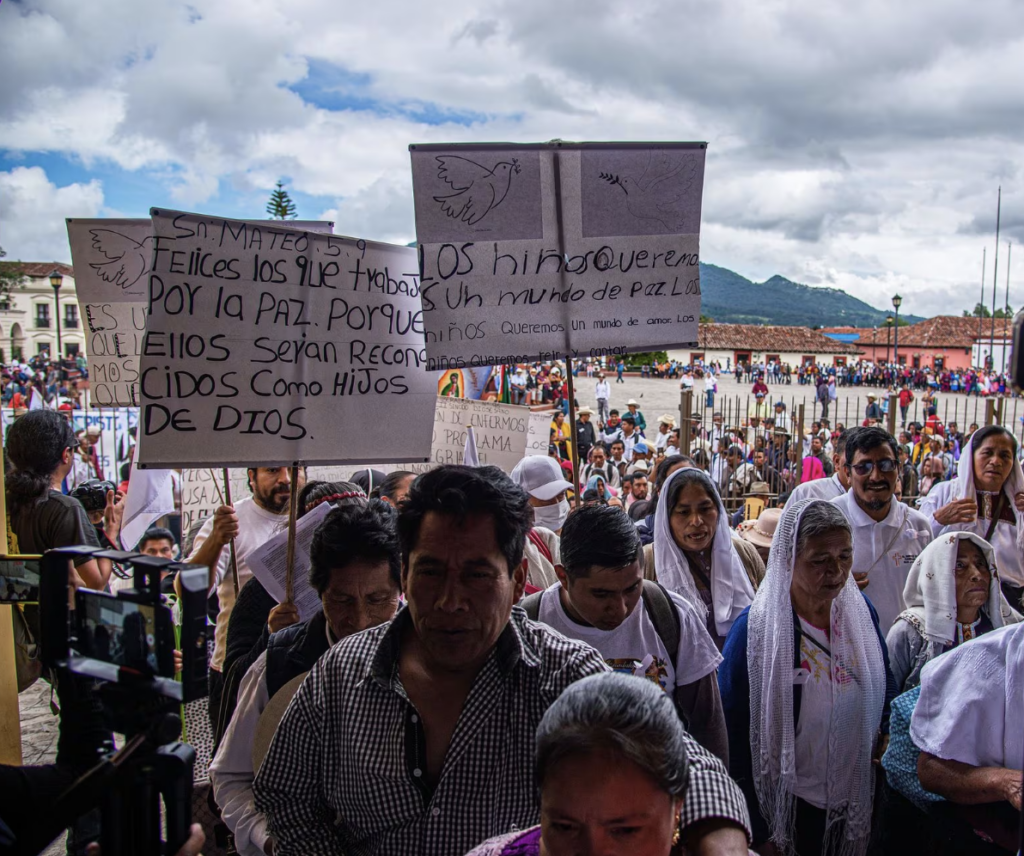
05/29/14 (written by lcorona) — A year and a half after Mexican President Enrique Peña Nieto took office in December 2012, analysts and observers continue to debate his administration’s achievements and shortcomings in controlling the public security situation. To discuss Mexico’s current situation and offer her insights, México Eválua’s Edna Jaime sat down with Justice in Mexico Contributor Leticia Corona. Jaime is the founder and director of México Eválua, an organization dedicated to the analysis, monitoring, and evaluation of public policies in Mexico. To start, Jaime discussed the reasons why Mexico continues to perform poorly and suffer from weak a rule of law, insecurity, high rates of violence, and weak institutions. To date, she says, the Federal Government has not been clear about its official security policy and strategy:
“We currently have a lot of fragmentation of these organized crime groups; it seems they stopped being a national security threat and now they have become a public security threat. The problem is that we [in Mexico] do not have a way to deal with this national insecurity because we do not have the judicial institutions for security at the local level to confront the problem of insecurity in the country. [Former President Calderón’s strategy of going after the leaders of the cartels was successful in capturing them, but it did not solve the problem of insecurity, kidnappings, killings, [and] extortions, [as] the perception of fear increased during his administration. It is still not clear to me what the security strategy is for the [Peña Nieto administration]; it seems he is continuing to take the same approach as the former administration of President Calderón.”
Jaime further explained that Mexico’s lack of a strong rule of law, which is fundamentally important as the base for functional and equitable communities, fosters an environment where corruption and impunity can flourish. Jaime attended the 2013 World Justice Forum hosted at the Hague and brought special attention in this interview to the World Justice Project’s recently released “Rule of Law Index 2014,” a report that ranks countries’ strength of rule of law, quality of governance, and criminal justice system, among other indicators, based on surveys of perception and experiences administered to over 100,000 households country-wide. In overall scores, Mexico ranked 79th lowest of 99 countries, with nearly identical scores as Russia, Madagascar, China, and Egypt, among others. It had the fifth lowest score of all countries in the Western Hemisphere, only ranking higher than Guatemala (83rd), Nicaragua (85th), Bolivia (94th), and Venezuela (99th). In civilians’ perceptions and experiences with the criminal justice system, Mexico ranked much worse, coming in at 97th of 99.
Jaime also recognized that violent crimes, such as kidnappings and extortions, have increased in Mexico, as Justice in Mexico reported recently. However, there has been a discernable decrease in intentional homicides—a drop of roughly 15% between 2012 and 2013 according to data from Mexico’s National Security System (Sistema Nacional de Seguridad Pública, SNSP). Similarly, Mexico also fared far better on constraints on government powers (48th) and open government (32nd) in the World Justice Project report than it did on the other indicators measured.
As such, Jaime concluded by stating that she is optimistic about the Peña Nieto administration’s progress with its reforms and Mexico’s movement in the right direction, though she cautioned that the government still has to regain its authority and hold its citizens accountable:
“It is going to be two years since the President won the elections [in July 2012] and we are still in this learning curve. The capture of [Joaquín “El Chapo” Guzmán in February 2014] shows that there is internal coordination between the Mexican agencies that are in charge of security and external coordination with the United States for these types of precise interventions. This is good news because, among other things, the Mexican government can recover [its] authority, for which in the past it has been systematically humiliated. The Mexican government should be able to set the rules and limitations, not vice-versa, and [El Chapo’s] apprehension is a step in the right direction, meaning not everything is bad news. I think the capture of [El Chapo] does mark a very important accomplishment for this new administration and we hope this will be accompanied by more concrete measures to overcome crime and the crimes that most affect citizens. [Nevertheless], although they captured El Chapo, violent crimes continue to increase such as kidnappings…[T]his has made Mexicans feel vulnerable in their sense of security.”
Sources:
“WJP Rule of Law Index 2014.” World Justice Project. March 5, 2014.




